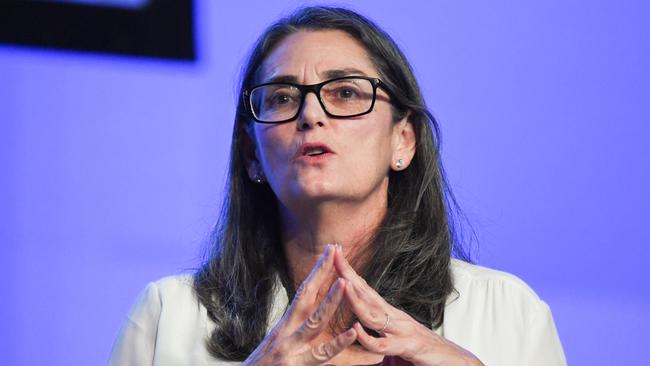
MinterEllison chief Annette Kimmitt noted: “We’re seeing a tipping point in corporate Australia’s approach to climate risks”, and the survey of more than 70 business leaders underlined the point.
The business leaders’ comments come as Prime Minister Scott Morrison says that climate change is an international issue and Australia is ahead of its commitments.
On Monday, Mr Morrison said Australia was taking action on climate change and on track to meet emissions objectives. Writing in The Daily Telegraph, Mr Morrison said Australia would exceed its Kyoto commitments, and meet its Paris commitments. On climate change Mr Morrison said: “There is no disagreement and there has not been any denial of this critical factor, either by the federal government or any state or territory government.”
Still, business thinks more needs to be done, while at the same time committing to a national energy policy.
Energy Australia’s Catherine Tanna said: “We see a system based on wind and solar power, supported by residential and commercial battery storage, demand response, intelligent energy management systems, waste-to-energy projects and pumped hydro, backed up by gas-fired generation.
“The question is how we put the pieces together to create a new reliable and cleaner energy system for Australia - and do it at least cost. Put another way, if Australia were a new-build house, governments are the architects and business is the building contractor.”
Outgoing BHP chief Andrew Mackenzie said one of the key policy objectives was “to develop an enduring climate and energy policy that is able to meet the needs of business, while also making a contribution to the goals of the Paris Agreement”.
Every year, The Australian’s John Durie asks some of the biggest names in Australian business five key questions about what’s coming in the year ahead. Read more from the 2019 CEO Survey.
UBS Australia boss Anthony Sweetman spoke for many: “Over the past decade, Australia’s energy policy has lacked clarity and consistency. Businesses are not surprisingly reluctant to make significant long-term investment decisions in this environment and ultimately it is the community that will incur the cost either in the form of lost opportunities and or higher prices than would be necessary.”
Perpetual’s Rob Adams said: “There is a need for government policy to support and incentivise sustainable business practices focused on reducing their environmental footprint, just as we do as a company.”
QBE chief executive Pat Reagan warned of potentially higher insurance charges to offset the lack of consistent policy.
He said: “Climate change is a global challenge that poses a significant risk to our customers and our business. We have to meet our emissions reduction commitments under the Paris Agreement and we must continue to invest in adaptation and mitigation measures as climate risks continue to manifest.”
Herbert Smith Freehills boss Mark Rigotti told The Australian: “Low energy costs enable economic productivity. It amazes me that this cannot be sorted out. It requires federal government intervention and a single energy market framework.
“Climate change is here. The Europeans have really taken this on board.”
Coca-Cola Amatil’s Alison Watkins argued: “The realities of climate change are already here in the form of extreme weather, prolonged drought and risks to energy and water supplies. Of course the climate challenge can’t be solved by Australia alone.
“However, we (business) need to play our part and also plan how we will adapt. Business needs to commit to play its role in reducing carbon emissions and governments need to provide the policy settings that make the goals affordable and possible. That could be through stronger incentives to reduce energy use or improved manufacturing efficiency, or more support for renewable energy as an alternative to coal.”
Alinta’s Jeff Dimery outlined how business was helping to meet the objectives saying in the Pilbara in WA “we’ve been working with our mining partners and customers and pushing the bounds of what renewables can do. We’re able to do that because there’s not the same complexity of scale, regulation and embedded technologies to work with and around as there is in the National Energy Market on the east coast.
“We have a big battery at our Newman power station that is capable of running its own grid, and we’ve started building a solar farm that will power up to 100 per cent of Fortescue’s local daytime energy needs when it’s completed,” Dimery says.
“We’ve been very focused on energy for good reason, and we’re doing our bit, and the economics of renewables is improving.”






Royal commissioner Ken Hayne’s recent comments about business commitments on climate change were misplaced, based on the universal concerns expressed in this year’s business survey.